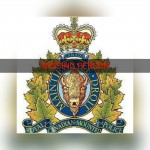Impaired driving is not limited to cars. Impaired driving also applies to all motor vehicles, including snowmobiles, all-terrain vehicles (ATV), boats and even aircraft and railway equipment.
Before, or at, a traffic stop, police officers use their training as well as what they see, hear and smell to look for signs that a driver may be impaired by alcohol and/or drugs.
If you are operating or in the care and control of any of the above (whether it is in motion or not) and you have consumed alcohol and/or drugs, a police officer may make a demand on you to:
- provide a sample of your breath, at roadside, on an Approved Screening Device (ASD)
- provide an oral fluid sample, at roadside, on approved drug screening equipment (ADSE)
- participate in Standardized Field Sobriety Testing (SFST)
Failure to comply with the demand will result in criminal charges which carry the same penalty as driving while impaired.
After providing a breath or oral fluid sample the results of that test will determine what, if any, further actions are taken. Some results of any of these tests can lead to arrest.
After an arrest, the driver is taken to a police detachment or medical facility to undergo additional testing. Additional testing can be done in the form of an evidentiary breath alcohol test, Drug Recognition Expert (DRE) evaluation or providing a blood sample, taken by a trained medical technician.
An approved drug screening device is not required to enforce drug impaired driving laws. If the police officer does not have approved drug screening equipment available, they are also able to use SFST to determine if they have reasonable grounds to believe a driver is impaired.
The Investigative Process
Roadside testing – prior to arrest
Under new legislation, a police officer can now demand that a driver provide an oral fluid sample to be tested with an ADSE at the roadside.
- If the oral fluid sample comes back positive, the driver can be arrested and undergo additional testing.
- If the oral fluid sample comes back negative, and the police officer continues to see indications of drug usage, they can demand that the driver participate in a Standardized Field Sobriety Test (SFST).
- If the driver passes the SFST, they are released.
- If the driver performs poorly on the SFST, they can be arrested.
- If the oral fluid sample comes back negative, and the police officer doesn’t see indicators of impairment, the driver can be released.
Additional testing – after an arrest
Under new legislation, after the suspected drug-impaired driver is arrested, police can proceed in one, or both, of the following ways:
- A police officer can demand that the impaired driver provide a blood sample.
- If, after analysis, the blood sample shows a blood drug concentration over the legal limit the driver is charged with the associated offence.
- If, after analysis, the blood sample shows a blood drug concentration under the legal limit, no charges are laid.
- Demand that the driver undergo a 12-step DRE evaluation at a police detachment.
- If, after the evaluation, the police officer determines that the driver is impaired by drugs, a charge can be laid and a bodily fluid sample is taken to confirm the findings of the evaluator.
- If, after the evaluation, the police officer determines that the driver is not impaired by alcohol and/or drugs, no charges are laid and no bodily fluid sample is taken.
Other Criminal Charges
Based on a police officer’s observations you can also be charged criminally, under section 253 of the Criminal Code of Canada : the person’s ability to operate the vehicle, vessel, aircraft or railway equipment is impaired by alcohol or a drug, without submitting to a breath or other demand.
Provincial Laws also carry additional penalties for impaired driving
Check your Provincial/Territorial laws to determine what additional administrative penalties may be imposed upon you, in addition to any criminal penalties, for impaired driving where you live.
Definitions and explanations
- The “Warn” range (a Blood Alcohol Content of 50mg% to 80mg%)
- An individual who submits a breath sample in the “warn” range, a BAC of 50mg% to 80mg% (50-80 milligrams of alcohol in one hundred milliliters of blood), can be subject to administrative penalties such as a roadside suspension or an immediate roadside prohibition.
- A “Fail” (a Blood Alcohol Content above 80mg%)
- An individual who submits a breath sample and registers a “fail” (a BAC above 80mg%), will be required to provide further breath samples at the police station. A subsequent breath sample that exceeds the legal BAC limit of 80 mg% means that the person may be charged under section 253 of the Criminal Code of Canada: having consumed alcohol in such a quantity that the concentration in the person’s blood exceeds eighty milligrams of alcohol in one hundred milliliters of blood.
- Standardized Field Sobriety Test (SFST)
- If you are operating or in the care and control of a car, truck, ATV, boat, aircraft, etc. (whether it is in motion or not) and you have consumed alcohol, drugs or a combination of alcohol and drugs, a police officer may make a demand on you to submit to a Standard Field Sobriety Test (SFST).
A SFST test is typically administered roadside and consists of a police officer putting a suspected impaired driver through a series of standardized sobriety tests.
Based on a police officer’s observations you can also be charged criminally, under section 253 of the Criminal Code of Canada without submitting to a SFST demand.
Failure, or refusal, to comply with the SFST demand can also result in criminal charges that have the same penalties as impaired driving.
- Drug Recognition Expert Evaluation
- If you comply with the demand, the evaluation includes sobriety tests that are similar to the SFST’s, taking clinical indicators (blood pressure, body temperature, pulse, etc.) and measuring your pupil size in different lighting conditions. If, at the conclusion of the evaluation the officer forms the opinion that your ability to operate a motor vehicle is impaired by one, or more, categories of drugs, you will be charged under section 253 of the Criminal Code of Canada.
Refusal to undertake the evaluation or quitting at any time will result in criminal charges that have the same penalties as driving while impaired by alcohol.
At the conclusion of the drug evaluation you will be given a demand to provide a bodily fluid sample (blood, oral fluid or urine) if the evaluator determines that you are impaired and that the impairment is the result of one or more category of drugs, or a combination of alcohol and drugs. The sample is to confirm the findings of the evaluator and the choice of the sample is made by the evaluator.
Failure to provide the sample will result in criminal charges that have the same penalties as impaired driving.
.
Source : RCMP



